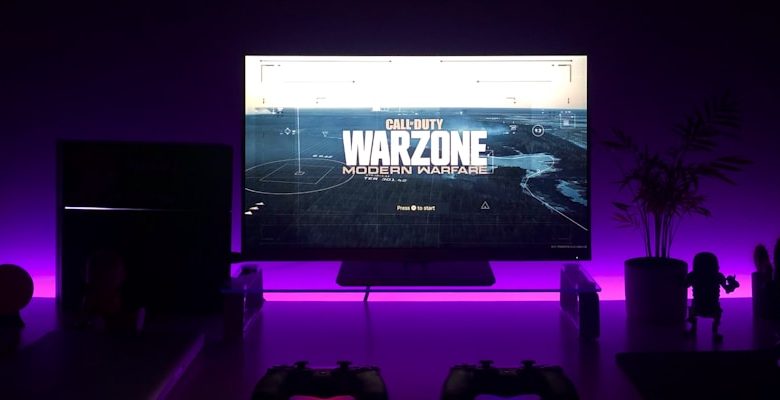How Decentralized Ecosystems Are Revolutionizing Gaming

- Introduction to Decentralized Ecosystems in Gaming
- The Rise of Blockchain Technology in the Gaming Industry
- Exploring the Benefits of Decentralized Gaming Platforms
- The Impact of NFTs on the Gaming Experience
- Challenges and Opportunities in Decentralized Gaming
- Future Trends in Decentralized Ecosystems for Gaming
Introduction to Decentralized Ecosystems in Gaming
Decentralized ecosystems are transforming the landscape of gaming by offering players more control and ownership over their in-game assets. These ecosystems utilize blockchain technology to create transparent and secure environments where players can buy, sell, and trade virtual items without the need for intermediaries.
One of the key advantages of decentralized ecosystems in gaming is the ability to ensure true ownership of in-game assets. By using blockchain technology, players can have full control over their virtual items, preventing them from being taken away or manipulated by centralized authorities. This level of ownership gives players a sense of empowerment and security in their gaming experience.
Furthermore, decentralized ecosystems also promote a more open and fair gaming environment. With blockchain technology, transactions are recorded on a public ledger that is accessible to all participants. This transparency helps to prevent fraud and cheating, creating a level playing field for all players involved.
In addition, decentralized ecosystems enable players to monetize their gaming experience in new ways. Through the use of non-fungible tokens (NFTs), players can create unique and valuable in-game items that can be bought and sold on decentralized marketplaces. This opens up new opportunities for players to earn real-world value from their time and effort spent in the game.
Overall, decentralized ecosystems are revolutionizing the gaming industry by providing players with greater control, transparency, and opportunities for monetization. As this technology continues to evolve, we can expect to see even more innovative solutions that will shape the future of gaming for years to come.
The Rise of Blockchain Technology in the Gaming Industry
Blockchain technology has been making significant strides in revolutionizing the gaming industry. This decentralized ecosystem offers a transparent and secure way of conducting transactions within games, enhancing the overall gaming experience for players. The rise of blockchain technology in gaming has paved the way for new opportunities, such as ownership of in-game assets and cross-game interoperability.
One of the key advantages of blockchain technology in gaming is the ability to verify the scarcity and authenticity of digital assets. This ensures that players have true ownership of their in-game items, allowing them to trade or sell them in a secure and transparent manner. Additionally, blockchain technology enables players to earn cryptocurrencies through gameplay, providing an incentive for active participation in the gaming ecosystem.
Furthermore, blockchain technology allows for the creation of decentralized autonomous organizations (DAOs) within games, where players can collectively make decisions regarding the development and governance of the game. This level of community involvement enhances player engagement and fosters a sense of ownership among the gaming community. Overall, the rise of blockchain technology in the gaming industry is reshaping the way games are played and experienced, offering new possibilities for both players and developers alike.
Exploring the Benefits of Decentralized Gaming Platforms
Exploring the benefits of decentralized gaming platforms can shed light on how this innovative technology is transforming the gaming industry. Decentralized ecosystems offer a range of advantages that traditional centralized platforms cannot match.
- Enhanced security: Decentralized gaming platforms utilize blockchain technology to ensure that user data and transactions are secure and protected from hacking and fraud.
- Transparency: With decentralized platforms, all transactions are recorded on the blockchain, providing a transparent and immutable record of all gaming activities.
- Lower fees: By cutting out middlemen and intermediaries, decentralized gaming platforms can offer lower fees for players, allowing them to keep more of their winnings.
- Ownership of in-game assets: In decentralized gaming platforms, players truly own their in-game assets, as they are stored on the blockchain and cannot be taken away by the game developers.
- Interoperability: Decentralized gaming platforms allow for interoperability between different games, enabling players to use their in-game assets across multiple games and platforms.
Overall, decentralized gaming platforms are revolutionizing the gaming industry by providing a more secure, transparent, and player-centric gaming experience. As more players and developers embrace this technology, the potential for decentralized ecosystems to reshape the gaming landscape continues to grow.
The Impact of NFTs on the Gaming Experience
The integration of Non-Fungible Tokens (NFTs) into the gaming experience has had a profound impact on how players interact with virtual worlds. NFTs provide a unique way for gamers to truly own in-game assets, such as characters, weapons, and skins, by storing them on the blockchain. This ownership gives players a sense of pride and investment in their gaming experience, as they can buy, sell, and trade these assets with other players.
Furthermore, NFTs have the potential to revolutionize the gaming industry by creating new revenue streams for developers and players alike. Developers can sell limited edition NFTs as collectibles or special items, while players can earn real-world value by trading their acquired assets. This shift towards a decentralized ecosystem not only empowers players but also incentivizes creativity and innovation within the gaming community.
Challenges and Opportunities in Decentralized Gaming
Decentralized gaming presents a unique set of challenges and opportunities for both developers and players alike. One of the main challenges is the complexity of integrating blockchain technology into gaming platforms. This requires a high level of technical expertise and resources, which can be a barrier for smaller game studios. However, the opportunities that decentralized gaming offers are immense.
One of the key opportunities is the ability for players to truly own their in-game assets. This not only gives players more control over their gaming experience but also opens up new possibilities for trading and monetization. Additionally, decentralized gaming allows for true ownership of digital assets, which can lead to increased player engagement and loyalty.
Another challenge in decentralized gaming is the issue of scalability. As more players join decentralized games, the network can become congested, leading to slower transaction times and higher fees. This is a problem that developers are actively working to solve, with solutions such as layer 2 scaling and sidechains.
On the other hand, the decentralized nature of these games also presents opportunities for new gameplay mechanics and experiences. Smart contracts can be used to create complex in-game economies and interactions that were not possible in traditional centralized games. This opens up a whole new world of possibilities for game developers to explore.
In conclusion, while decentralized gaming comes with its own set of challenges, the opportunities it presents are truly revolutionary. By overcoming these challenges and embracing the unique possibilities of blockchain technology, developers and players can create a new era of gaming that is more immersive, engaging, and rewarding for all involved.
Future Trends in Decentralized Ecosystems for Gaming
The future of decentralized ecosystems in gaming looks promising as technology continues to advance. These ecosystems are revolutionizing the gaming industry by offering new opportunities for players, developers, and investors alike. One key trend to watch out for is the integration of blockchain technology into gaming platforms, enabling secure and transparent transactions.
Another trend is the rise of decentralized autonomous organizations (DAOs) in gaming, which allow for community-driven decision-making and governance. This shift towards decentralization empowers players to have a more active role in shaping the games they love to play.
Furthermore, the use of non-fungible tokens (NFTs) in gaming is gaining traction, providing unique digital assets that players can truly own and trade. This opens up a new world of possibilities for in-game items, collectibles, and virtual real estate.



